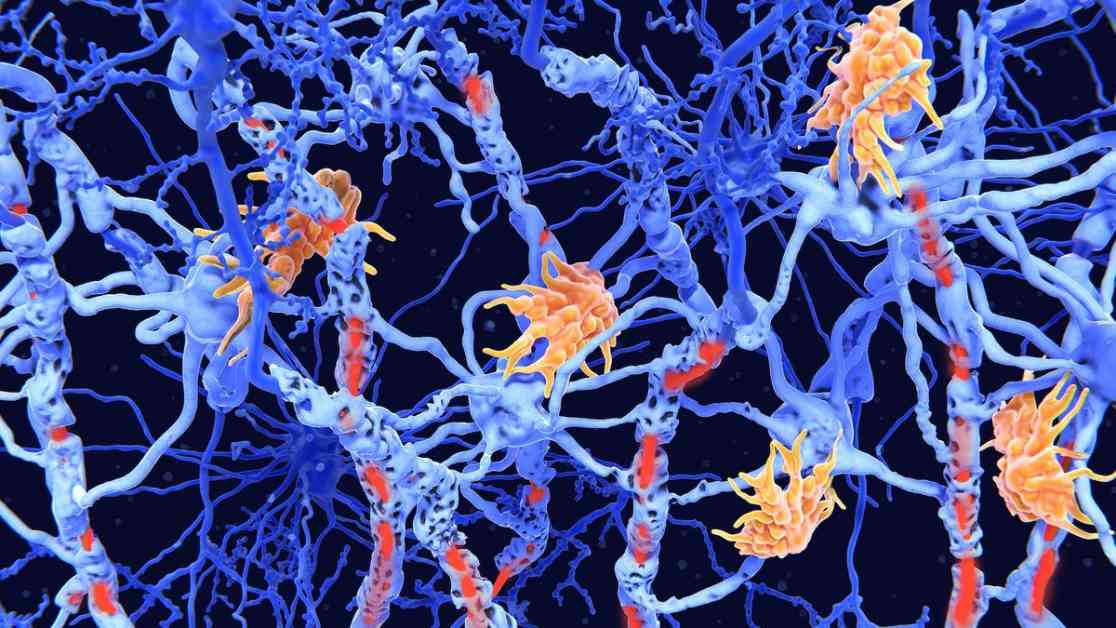New research has uncovered genetic markers that could indicate the early stages of multiple sclerosis (MS) before symptoms appear, according to scientists. MS is a disease that causes inflammation in the brain and spinal cord, leading to damage to the myelin sheaths that protect nerve cells. This damage can result in symptoms such as pain, fatigue, numbness, weakness, vision problems, and movement difficulties.
Individuals with MS typically have high levels of cytotoxic T cells, a type of immune cell that accumulates in areas where myelin damage is present. However, the role of these cells in the disease has been largely unknown until now. A recent study published in Science Immunology examined the T cells of 12 pairs of identical twins, where one twin had MS and the other did not. This unique study design allowed researchers to gain insights into the immune systems of individuals who are at risk of developing MS.
The findings of the study revealed that the T cells of individuals with MS or central nervous system (CNS) inflammation were more active and demonstrated increased immune signaling compared to those without these conditions. The researchers also observed higher gene activation in individuals with CNS inflammation, indicating early indicators of MS before the disease progresses to a more advanced stage.
By understanding the genetic changes in T cells at different stages of MS, researchers hope to improve early diagnosis and initiate treatment before significant neurological damage occurs. Early intervention in the inflammatory process could potentially lead to better outcomes for patients with MS. While the study had a limited sample size, further research with larger cohorts is needed to validate the findings and explore other immune cell types involved in MS pathology.
In addition to the study findings, Dr. David Duncan, a neurologist not involved in the research, emphasized the importance of early intervention in MS to minimize disability outcomes. By identifying the earliest signs of MS, healthcare providers can offer timely diagnosis and targeted therapies to patients at risk of developing the disease.
Overall, the study sheds light on the potential for early detection of MS through genetic markers in T cells. Further research and replication of the findings are necessary to advance our understanding of the disease and improve patient outcomes. The insights gained from this study may pave the way for personalized treatments and interventions for individuals at risk of developing MS.










